“I look at my role as being a friend of Canberra Hospital, I can bring some pleasure and happiness sometimes to people who are really in difficult times in their lives.”
With backing music from a Bluetooth speaker, Sayer croons his way around the cancer wards, making a human connection with everyone he comes across.

Canberra Region Cancer Centre Operations Manager Caroline McIntyre says Sayer’s visits are typically kept a surprise for patients and staff.
“He’s always come in so discreetly,” she says.
“Normally it’s just very quiet, he comes up in the back lift and says hello to literally everybody.
“Some of them are doing it tough, and to have a little bit of joy and light – it really gives them a lift.
“What makes me happy is to see people getting chemo on their feet dancing.”
Jamming with Jimi Hendrix, Countdown and the Troubadour
Originally a graphic designer by trade, English-born Leo Sayer rose to pop prominence in London in the late 1960s, as a singer-songwriter – and was soon adopted by Australia as an honorary son after his first tour here in 1974.
He went on to become an Australian citizen in 2009.
Sayer was a regular on ABC TV’s Countdown during the 70s and 80s, performing chart-toppers like “You Make Me Feel Like Dancing”, “When I Need You”, “More Than I Could Say” and “Orchard Road”.

He blushingly admits they were wild days – when he didn’t always live up to his “good-guy” public persona.
“It was mad, I mean, Top of the Pops in England, Countdown over here,” he says.
“You were mobbed by the fans, I remember being dragged out of a limousine the first tour that I came here, and then speaking to crazy people like Molly Meldrum on TV and trying to sort of like take it all in.”
It seems hard to believe – the petite, well-spoken singer, with a mane of curly hair that inspired changing his name from Gerard to Leo – beating off mobs of screaming fangirls.
Sayer circulated in superstar company, becoming close friends with former Beatles George Harrison and Paul McCartney, collaborating with Roger Daltrey of The Who, and even sharing a sly cigarette or two with John Lennon and Yoko Ono who had a flat above his design studio.
“I met Jimi Hendrix right at the start of his career. I actually jammed with him, playing the harmonica, and him playing the guitar,” he says.
Recalling his 1975 opening night at the famous Troubadour Club in Los Angeles, he looked up to see an intimidating line-up of fans in the front row.

“It was David Bowie, Elton John, and ‘The Fonz’ [Henry Winkler].”
Alongside them: John Cleese, Mick Jagger, Bernie Taupin, and comedian Marty Feldman.
“We never thought it would last, we were adapting to things around us, writing songs about things that are around us,” he says.
“And we thought they were only for our generation — so the amazing thing is my music’s become like a fine wine, where you lay it down and years later, it becomes a collector’s item.
“We’re in an age where the music that I make, young kids are actually latching onto it now, and they’re finding that that generation and that style of music we made is as current now as anything.”
Sayer’s health battles, still spreading hope at 76
Leo Sayer says his hospital charity work caps off a career dedicated to providing joy through music.
“It’s a nice piece of synchronicity really, because I was born in the grounds of a hospital in Shoreham by Sea in Sussex, near Brighton in England,” Mr Sayer said.
“I suppose I’ve always felt comfortable in hospitals and being around hospitals.
“Growing up, my dad was a hospital engineer, Mum was a nurse, my sister was a matron.”
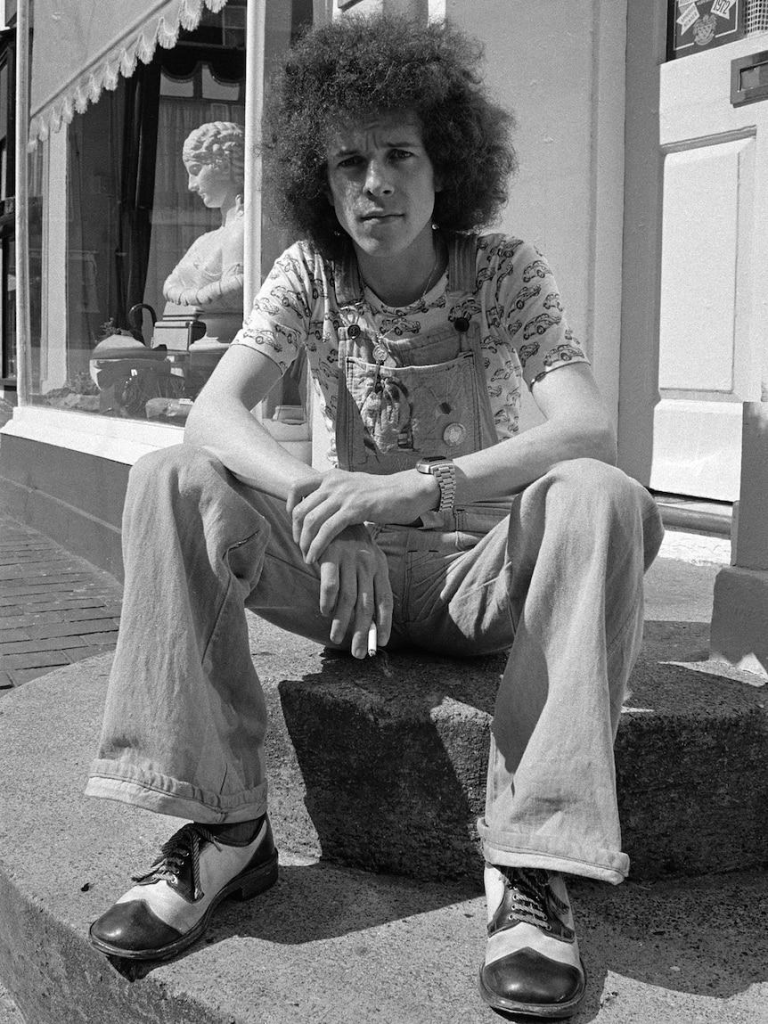
Sayer has health struggles of his own, including three stents in his heart, which help him have a genuine connection to the hospital patients he entertains.
“[My music] is providing something that isn’t taking away from any of the treatment that’s going on. It’s providing something that’s just putting a smile on peoples’ faces.
“Music is communication and that’s what this is all about, we’re communicating, we’re making people feel better.
“We’re not healing people with music, but we are making them feel better about their healing.
“To sell out Canberra Hospital will do me fine.”
What does a 69-year-old beautiful Veronica Castro look like, and what is the current status of “Wild Rose”?

She was recognizable to many people because of shows like “Wild Rose” and “The Rich Cry Too.” She was a fairly young actress back then, and she is now 69 years old. Today, we’ll tell you how she looks and what she did after the series. Veronica was born on October 19, 1952, in Mexico City. Her family, which also included two brothers and a sister, lived in squalor and struggled financially after her father left. At the university, my mother was a secretary.
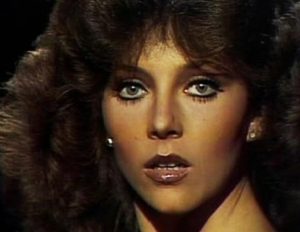
Due to her low stature (153 cm), Veronica was teased at school and called names like “fat” and “short.” Later, when she was younger, the girl made the decision to focus on her appearance. She shed a lot of weight, even entered a beauty pageant, and started appearing in school plays and concerts.
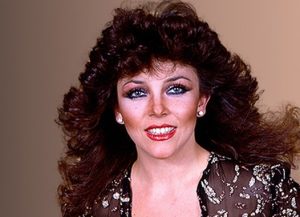
After winning the “Face of the Year” competition in 1970, Veronica had offers to appear on television as a presenter and then as an actor. She started acting in the theater as well, and as time went on, she made fame and escaping poverty her main priorities in life.
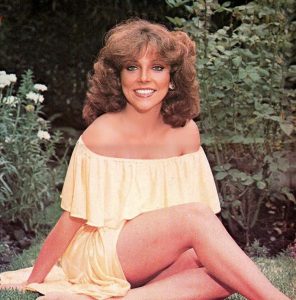
Her new interest, singing, has developed into much more. Castro eventually started performing live. Since she was 19 years old, Veronica has been appearing in films; her first appearance was in the television series Love has a Female Face. Additionally, she has appeared in over 40 movies and TV shows in her filmography.
The names of the major characters, Marianne and Luis Alberto, have stuck in the memory for a very long time, even though the plot of the iconic serial “The Rich Also Cry” has long since been forgotten. The actual series was shot in 1979, and we started airing it in 1991.
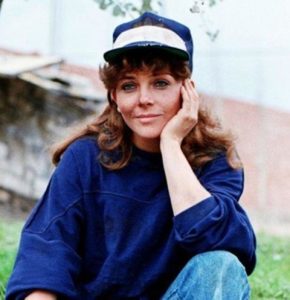
Additionally, you are undoubtedly aware that Castro sang the soundtracks for the series screensavers for “Wild Rose” and “The Rich Cry Too” if you remember them. After the premiere of the television series House of Flowers in 2018, Veronica called it quits.

The actress’s personal life did not work out, but this did not prevent her from giving birth to children. She has two beautiful sons — Christian (46 years old), who became a singer, and Michelle (36 years old) — became a director.
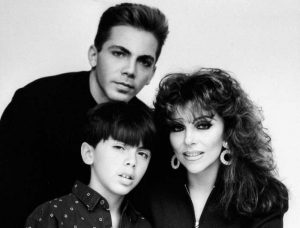
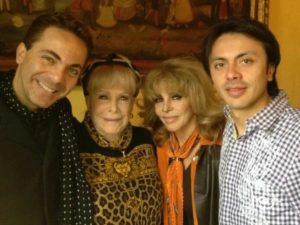
Castro visited Russia in 1992 to film “Meeting with Rose.” She also performed on the program “Minute of Fame” during her second visit, which took place in 2010, and she joined the jury for that issue.
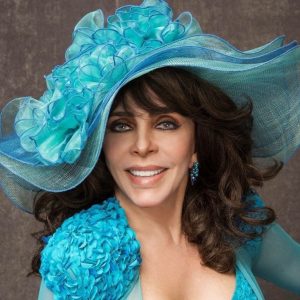
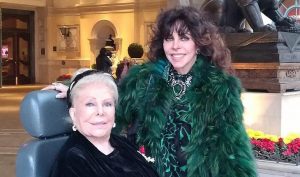
Veronica Castro currently owns a chain of cosmetics and perfume shops as well as her own cosmetics line, «Veronica Castro».


The actress maintains her beauty with both her lifestyle and plastic surgery, and she looks terrific. She exercises and plays tennis. also keeps on singing and working in TV. And even if the actress declared that her film career was over, it’s possible that she will still receive offers to participate in projects.

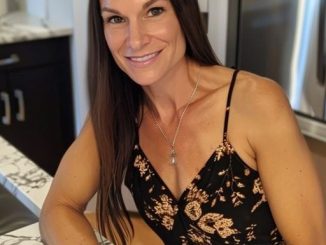


Leave a Reply